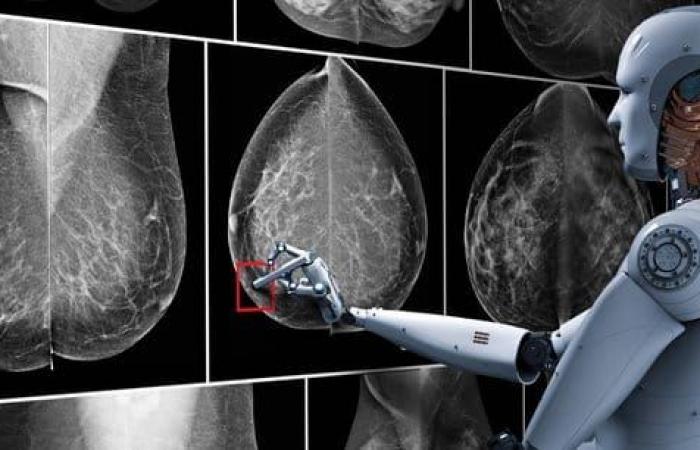Artificial intelligence (AI) is transforming many industries, and medicine is no exception. One of the most promising advances lies in the use of AI algorithms to analyze medical images, offering new insights for early cancer detection and treatment planning.
Analysis of medical images: precision in the service of diagnosis
AI is now capable of analyzing medical images with remarkable precision. Advanced algorithms can review CT and MRI images to detect anomalies faster and more accurately than traditional methods. These technologies make it possible to spot subtle details that might go unnoticed during human analysis.
For example, recent studies show that AI can detect breast cancer with comparable or even better accuracy than experienced radiologists. This ability of AI to process large amounts of data quickly helps identify signs of cancer at an early stage, increasing the chances of successful treatments.
Early detection and personalized treatment of cancer
Early detection is generally crucial to improve the chances of survival of cancer patients. AI contributes to this task by enabling liquid biopsies to be performed.
These non-invasive tests use blood samples to detect circulating tumor cells or tumor DNA. Thus, they provide important information about the presence of cancer without requiring procedures that go inside the body.
Additionally, AI helps in treatment planning providing detailed information about the size, shape and location of tumors. This precision allows doctors to design tailor-made treatment plans for each patient, maximizing the effectiveness of therapies while minimizing side effects.
The challenges, limitations and potential dangers of AI in medical imaging
Although promising, the use of AI in medical imaging has significant limitations. Algorithms must be clinically validated to ensure their reliability and accuracy in various contexts. This also requires appropriate training of healthcare professionals.
Dangers include the risk that algorithms will be influenced by training data that does not adequately represent the diversity of real-world medical cases. This could lead to errors in diagnoses, with unfair consequences for some patients.
Additionally, over-reliance on AI could decrease physician vigilance, increasing the risk of errors in the event of AI failure.
It is important to emphasize that AI remains a tool at the service of humans and cannot replace human expertise, which remains essential in the medical field.
In terms of data security, the use of AI requires the collection and processing of large amounts of sensitive medical data. This raises concerns regarding patient confidentiality and data protection.
Conclusion
In conclusion, artificial intelligence is revolutionizing medical imaging by enabling faster and more accurate cancer detection and personalized treatment planning. But potential risks, such as algorithmic bias and overreliance, show the importance of maintaining a balance between technological innovation and human vigilance.
A recent survey by PulseLife reveals the growing adoption of artificial intelligence (AI) in the French medical sector. More than half of healthcare professionals already integrate AI into their daily practice and trust it. The vast majority of respondents recognize its beneficial impact on patient care. Yet only 6.6% have received specific training on AI, and around 80% would like to receive one. (Survey: what do French doctors think of AI?)
And you ? What do you think about artificial intelligence in the medical sector?
Sources : World Economic Forum et Medical Tourism Magazine.






